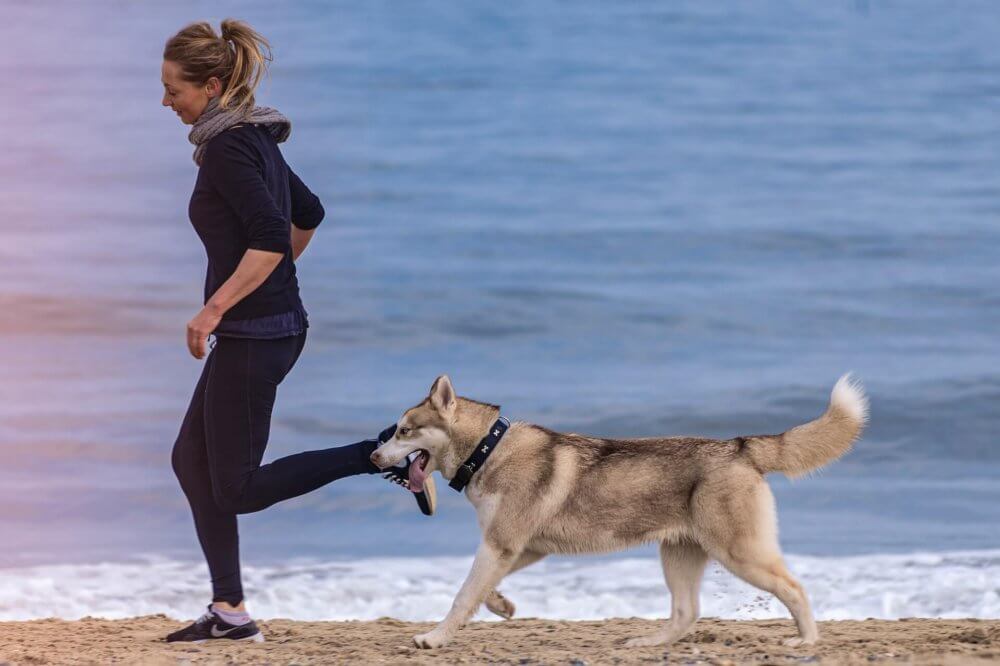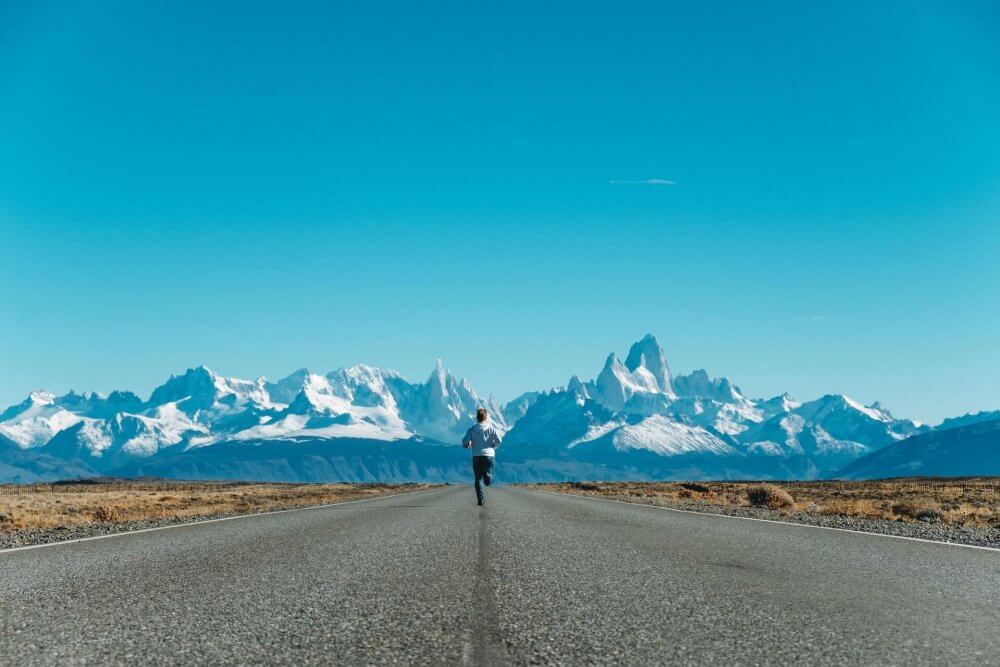The Journey of Running (What To Do When Life Gets in The Way)

When you think about the running journey, there are so many facets to consider. If you have been running for quite some time, you likely have experienced the ups and downs, the ins and outs. For new runners, perhaps you are considering what is to come for you.
One thing that rings true for most of us is that sometimes, it is easy getting down on yourself after a less than stellar run, race or training cycle. It is important to remember that you should not compare yourself to another runner. It is equally important not to compare yourself to an earlier version of yourself.
As we transition through stages in our life, it is natural that at some points we have more to give to the sport than others. During those times, if we offer ourselves grace, we are more likely to find our running journey to be a positive one.
The Beginner
Newbie runners are often vacillating between a honeymoon phase and the epic struggle of a new runner. If you are a super excited new runner, anxious to see change in your athleticism, body and attitude, that honeymoon phase can be truly enjoyable! For some people, it seems that you can find growth in everything you do.
Makes sense, doesn’t it? If you are starting from the ground up, it is easy to see change. You go from not running at all to heading out on the open road. That alone will leave you feeling very accomplished. If you are using a program, such as Couch to 5K, you hit the road each day with a clear plan in place. At the end of each workout, if you are using a fitness tracker, you can see your growth in your pace and mileage. How exciting!

Once you have been running for a while you realize that some days, running just sucks. Trust me on this one. It is crazy that one day you will hammer through 5 miles at an awesome pace. And just a couple of days later, you might find yourself struggling just to complete 3 miles without walking.
Believe it or not, this happens way more than most people talk about. Veteran runners often remind those new to the sport that no matter how long you are into it, some days will just plain stink. Whether you have gastro issues plaguing you, the stress of life just weighs you down or your legs feel like lead, things can just get hard.
The best running advice I have is just to take the good with the bad and trust that “this too shall pass.”
Peak Fitness
Maybe it is a particular training cycle that you think about when you read the words “peak fitness.” If you have been a lifelong runner, you likely have some stellar performances from your youth. Is it reasonable to expect your 50-year-old self to perform equal to your 25-year-old self?
In many respects, it truly depends on what type of athlete you were in your youth. For many of my running friends who were standout high school and college athletes, once family and career obligations start to push their way in, races get shoved to the side. And for many people, this is the way they expected it to be!
Will most of those athletes ever get back to where they were at the height of their college running career? Most will not. However, to be fair, most also are not training to perform at that level and they recognize that. Just like we don’t expect to look in the mirror and see the unwrinkled face of our youth, we also do not expect to be that same person in other aspects.
It is also very important to point out that some master level athletes perform beautifully as they age. The science actually proves that the human body does not necessarily slow with age as much as many people assume it would. In addition, as we get a little older the family obligations are often lessened.
Without young kids at home or teenagers to follow to sporting and theater events, runners have more “me time,” which often leads to a stronger training experience. This is why some runners may find themselves experiencing personal records and peak fitness in their late 40s and early 50s.
The Aging Runner
As runners age, some find themselves experiencing more injuries. Overuse injuries are more likely to plague older runners than younger ones which stands to reason. Years of pounding the pavement can take their toll.
Some runners start to lose some cardiovascular fitness as they age and facing the reality that it is time to slow down is often a struggle.
Let’s face it. If aging did not have any impact on running, races with qualifying times such as the Boston Marathon would not change the qualifying times to make them slightly slower with every 5 years a person ages.
As runners get older, strength training becomes even more important in order to protect the body. Since we naturally lose muscle mass as we age, weights help to maintain and build muscle.
Stretching, both dynamic and static, is also important for older runners. Aging athletes lose flexibility if they are not constantly working at maintaining it. This can be done through yoga if committing to a regular stretching routine is not something you care to do.
Focusing on good nutrition and recovery are also key components for every runner, but are especially important for those in the master category. Taking these things seriously can help keep you healthy and running for years to come.
Cyclical Excellence
This may not be something you have considered before, but many athletes are familiar once giving it some thought. If you find yourself getting very focused on a particular race and working very hard toward a goal, then tapering off after, this is what is called cyclical training.
If you hit an amazing time or achievement during this time then either lose the motivation to continue after or maybe life gets in the way and you need to redshift your priorities, then this may be describing you.

This is something I have done more than once. I might train hard for a race, pull off a stellar run, then take a little time off. Not someone who always wants to be in deep training for something and tied to a schedule, I often just start to run for fun after a goal race. Some people might peek at my workout record and, looking at the data, think I go in cycles of serious training then sluffing off.
That would be an astute observation because, well, I do. I simply don’t have the bandwidth or desire to always be running hard, fast and focused. In Pam’s world sometimes running is just… well… fun. Or relaxing. Or social. Or all of these
Putting Life First
The last thing to consider is that sometimes we are in parts of our life where we just need to put “life” first. Maybe this means you have little kids at home and they need your focus. Perhaps it is because you are a full-time student gearing up for finals or a big entrance exam. Oftentimes our career or other obligations get in the way.
If you are putting your serious training on a pause because life just got in the way, sometimes that just needs to be okay.
I remember once I ran into a friend of mine at a race. He asked how my running was going. I explained that I had dropped my monthly mileage down to 60-70 miles a month since I was back in grad school in addition to working full-time. His response? “No excuses, Berg.”
I politely explained to him that it was not an excuse, it was an explanation because I was prioritizing my education because I was investing a lot of money into it. He looked baffled for a minute then said he had not thought about it that way.
I don’t for a second think this friend would ever skimp on his training to study, and that is A-ok! However, that doesn’t make it a bad choice for me.
Bringing It In For a Landing…
When I get wordy while telling a story my husband always says, “You’re circling the runway, now bring it in for a landing.” This blog makes me think of that. Why? Mostly because at first glance, it seems kind of random. Stay with me for just a few more minutes.
That is because, in some ways, it needs to be random. There are so many different stages in our journey as a runner. And notice the stages are not necessarily a start to finish journey.
You might start out super serious, then take a hiatus. Then you may start training for something, get an injury and end up sidelined. Maybe you will not run again for 10 years then you are back to being a beginner when BOOM! You hit a beautiful pace and you’re hooked again, scrolling the internet for a training plan.
The point is the journey is a long and beautiful one. No two journeys look the same. And our own journeys are likely to change as we go with the ebb and flow of life.
Be gentle with yourself throughout this process and try to remember to have a little fun. That is what matters.
Latest Articles
 Is Running on a Treadmill Easier Than Running Outside?Runners have their own preferences, whether it is treadmill running, running outside on the road, or exploring trails. So...
Is Running on a Treadmill Easier Than Running Outside?Runners have their own preferences, whether it is treadmill running, running outside on the road, or exploring trails. So... Is It OK to Use Trail Running Shoes on the Road?While trail running shoes can be used on roads, especially in situations where a runner encounters mixed terrains or pref...
Is It OK to Use Trail Running Shoes on the Road?While trail running shoes can be used on roads, especially in situations where a runner encounters mixed terrains or pref... How to Fix Sore Quads After Running?Rest, ice, gentle stretching, and over-the-counter pain relievers can help soothe sore quads after running. Also, ensure ...
How to Fix Sore Quads After Running?Rest, ice, gentle stretching, and over-the-counter pain relievers can help soothe sore quads after running. Also, ensure ... 10 Fruits With The Most Electrolytes to Replace Sports DrinksThese fruits are high in electrolytes such as potassium, magnesium, and calcium, essential for hydration, muscle function...
10 Fruits With The Most Electrolytes to Replace Sports DrinksThese fruits are high in electrolytes such as potassium, magnesium, and calcium, essential for hydration, muscle function...

